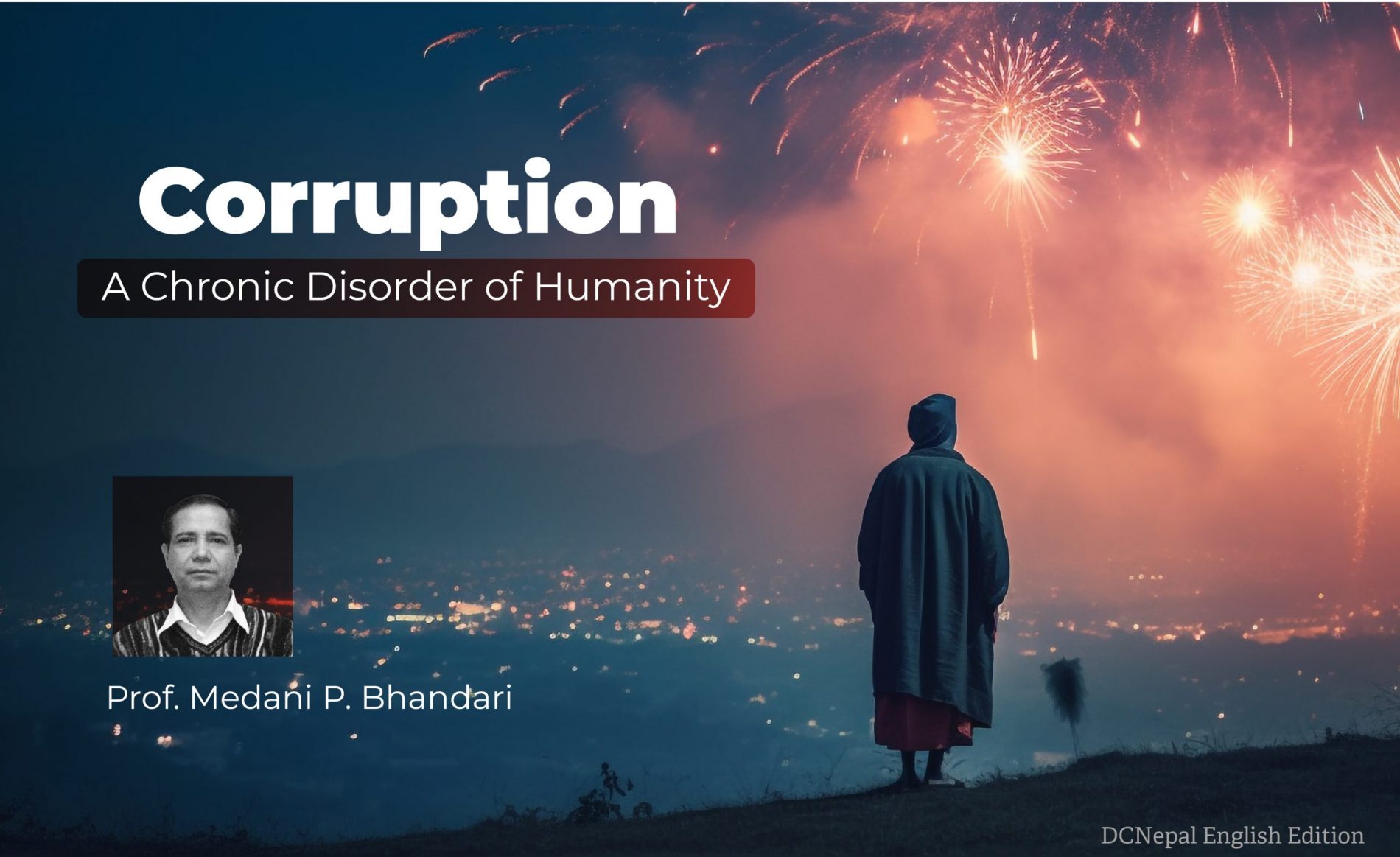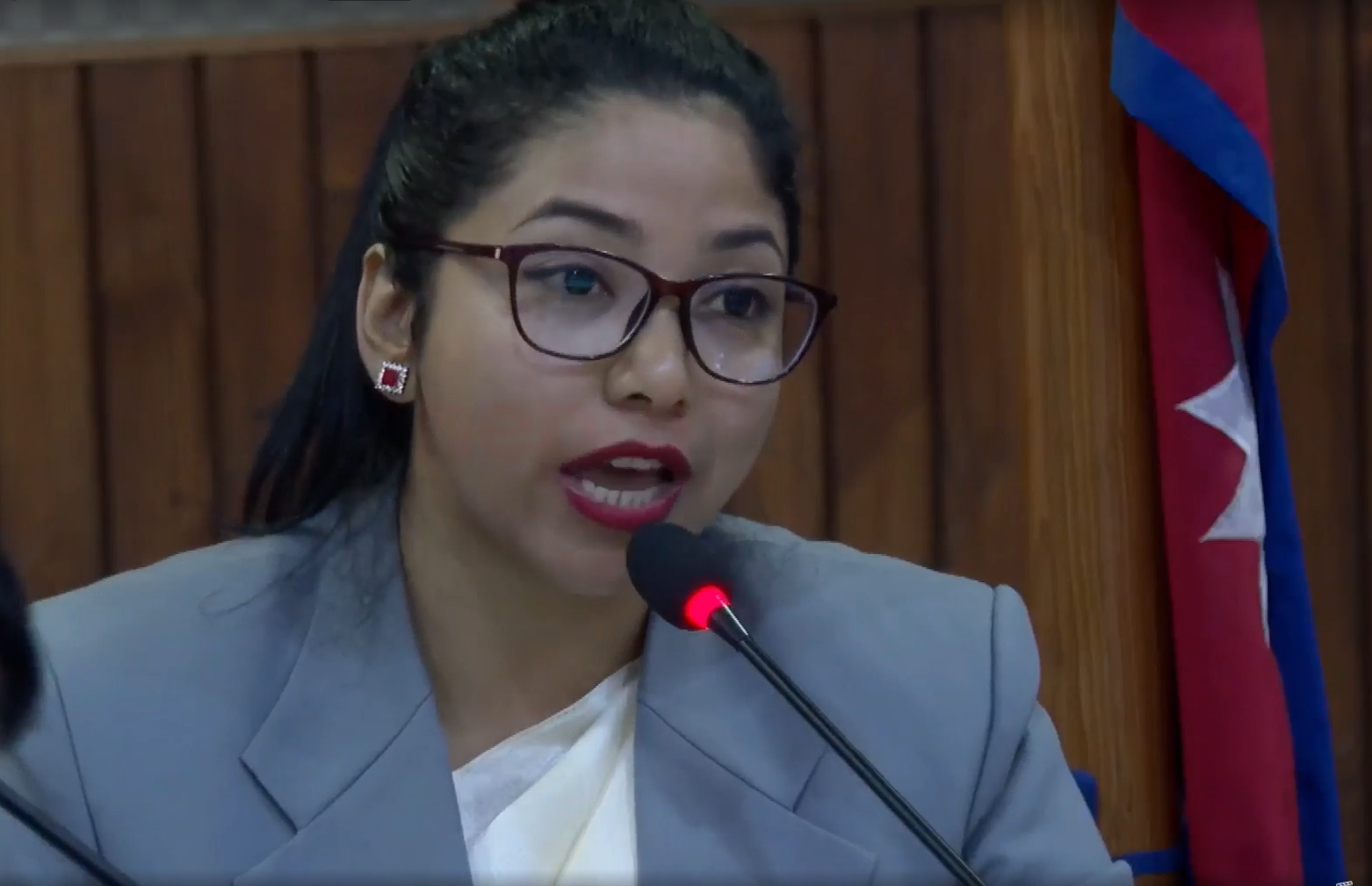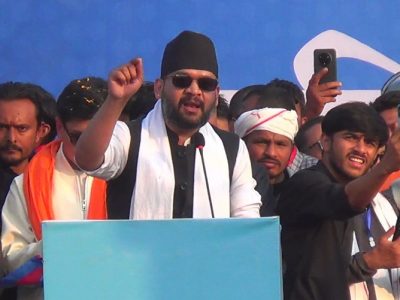The Corruption a Chronic Disorder of Humanity: in reference to Developing World
Corruption cannot be eradicated overnight…. It requires a cultural shift.

Corruption is a persistent problem, especially in the developing world, posing significant obstacles to national development. This paper provides an overview of corruption, its causes, and strategies to address it. Stakeholders, including academics, development practitioners, international and UN agencies, as well as governments, must recognize the urgency of collaboration to combat corruption. This is an opinion paper based on desktop research. It will give an idea how severe corruption is particularly in the poor developing countries.
Corruption refers to dishonest or unethical behavior involving the misuse of power or authority for personal gain. It can occur in various forms and in different sectors, such as politics, business, government, and even social interactions. Corruption typically involves bribery, fraud, embezzlement, nepotism, or other illicit practices that undermine the integrity, fairness, and efficiency of institutions and processes.
Corruption is harmful to societies and economies because it diverts resources away from their intended purposes, erodes public trust in institutions, undermines the rule of law, and perpetuates inequality and poverty. It can hinder economic development, discourage foreign investment, and distort the allocation of resources. Moreover, corruption can have severe social and political consequences, leading to social unrest, political instability, and the erosion of democratic principles.
Defining corruption
While corruption is indeed a complex and multifaceted issue, it is important to recognize that not all individuals possess a greedy, self-centric, or ill-minded mentality. While these traits can contribute to corrupt behavior, it is not accurate to say that they are inherent in all individuals or that corruption is solely a result of these characteristics.
Corruption can be influenced by a range of factors, including systemic issues, weak governance structures, cultural norms, and socioeconomic conditions. It is crucial to consider these broader factors when discussing corruption and to avoid generalizing all individuals as being driven solely by greed or selfishness.
Defining corruption requires a comprehensive understanding of the various forms it can take, and the underlying motivations and dynamics involved. It involves examining the abuse of power, the betrayal of public trust, and the misuse of resources for personal gain. By understanding corruption in its full complexity, societies can develop targeted strategies to prevent, detect, and address corrupt practices effectively.
Promoting a culture of integrity, strengthening institutions, enhancing transparency and accountability, and fostering ethical behavior are essential components of combating corruption. It requires collective efforts from individuals, communities, governments, and international organizations to tackle corruption and create a more transparent and just society.
It is not easy to define corruption, however, all forms of unethical actions, works, motives and moves can be considered as corruption. Corruption is the abuse of entrusted power for private gain. It can be classified as grand, petty, and political, depending on the amount of money lost and the sector where it occurs.
Corruption is the abuse of public office for private gain. Corruption involves the misuse or abuse of public office or entrusted power for personal or private gain. It occurs when individuals in positions of authority or public service prioritize their own interests or the interests of a select few over the welfare of the general public. Corruption often occurs within the context of public service, where individuals are expected to act in the best interests of the people they serve. Instead, corrupt individuals exploit their positions for personal enrichment, whether through bribery, embezzlement, fraud, nepotism, or other illicit means. By doing so, they undermine the principles of fairness, accountability, and the proper functioning of public institutions.
Corruption is omnipresent in all forms of social life
Corruption is not limited to specific sectors or institutions but can permeate multiple spheres of society.
Social corruption: Social corruption refers to corrupt practices or unethical behavior that occur within social spheres or interpersonal relationships. It involves deviations from accepted social norms, values, and ethical standards, often for personal gain or advantage. While social corruption may not always involve legal violations, it can have significant negative impacts on individuals, communities, and society as a whole, through Favoritism and Nepotism, Exploitative Relationships, Social Exclusion and Discrimination, Bribery in Social Settings, Misuse of Social Influence, Moral Degradation.
Politics and Government: Political corruption involves the abuse of power, bribery, embezzlement of public funds, and other illicit practices within the realm of politics and government. This includes corrupt practices such as bribery for political favors, embezzlement of public funds, electoral fraud, and abuse of public office for personal gain.
Political corruption is a significant problem in many developing countries. The misuse of power, bribery, embezzlement of public funds, and other forms of political corruption can have severe consequences for these nations.
Business and Economy: Corruption can be prevalent in the business sector, where unethical practices such as bribery, fraud, money laundering, and embezzlement can occur. Companies may engage in corrupt practices to secure contracts, gain unfair advantages, or avoid regulations. Corrupt business practices undermine fair competition, economic growth, and trust in the marketplace.
Healthcare and Pharmaceuticals: Corruption in healthcare systems can have severe consequences, as it can compromise patient safety, access to healthcare, and the efficient allocation of resources. Examples include kickbacks to healthcare professionals, illegal drug marketing, manipulation of drug prices, and diversion of healthcare funds.
Education: Corruption can infiltrate the education sector, with practices such as bribery for admissions, grades, or teaching positions. Corruption in education undermines the principles of meritocracy, equal opportunity, and quality education for all.
Sports: Corruption can occur in sports through match-fixing, bribery of officials, doping, and other illicit activities. These corrupt practices not only undermine the integrity of sports but also erode fair competition and the spirit of sportsmanship.
Civil Society and NGOs: While corruption is often associated with public and private sectors, even civil society organizations and NGOs can be vulnerable to corrupt practices. Misuse of funds, embezzlement, or diverting resources meant for charitable purposes are examples of corruption in this context.
It is important to acknowledge that corruption varies in its forms and prevalence across different societies and countries. While corruption can indeed be pervasive, it does not mean that every individual or institution is corrupt. Efforts to combat corruption involve promoting transparency, accountability, and ethical behavior, strengthening institutions, and fostering a culture that values integrity and ethical conduct.
Forms of Corruption
Many academician and international agencies have pointed out about the forms of corruptions, the most common form of corruptions can be Bribery, Fraud, Money laundering, Extortion, A kickback, Peddling influence, Cronyism/clientelism, Nepotism, Patronage, Speed money, Embezzlement, Embezzlement, and many more.
Bribery: Offering, giving, receiving, or soliciting something of value to influence the actions or decisions of an individual in a position of power. Bribery is indeed a significant problem in many developing countries and has detrimental effects on their societies and economies. Addressing bribery in the developing world requires concerted efforts to strengthen governance systems, enhance transparency and accountability, and promote a culture of integrity. This includes enacting and enforcing anti-corruption laws, implementing robust anti-bribery measures, promoting ethical behavior, and raising awareness about the damaging effects of bribery on society and economic development.
Fraud: Deliberate deception or misrepresentation to gain an unfair or unlawful advantage, often involving the manipulation of financial or official records. While fraud is a significant issue in many parts of the world, including developing countries, it is important to note that corruption takes various forms, and the prevalence of specific types of corruption can vary across different regions and contexts. Fraud is a type of corruption that involves deliberate deception or misrepresentation to gain an unfair advantage or financial benefit. It can occur in both public and private sectors and can have severe economic and social consequences. Addressing fraud requires a comprehensive approach that combines legal and regulatory reforms, capacity building, public awareness campaigns, and international cooperation. Strengthening governance systems, enhancing financial oversight, promoting transparency, and investing in technological infrastructure are vital components in combating fraud.
Money laundering: The process of making illegally obtained money appear legitimate by disguising its true origin through a series of complex financial transactions. Money laundering is a process by which illegally obtained money or “dirty” money is made to appear as if it comes from legitimate sources. It involves concealing the true origin, ownership, or destination of funds to make them appear clean or legitimate. Money laundering allows individuals or criminal organizations to enjoy the proceeds of their illegal activities while disguising the illicit nature of the funds.
Extortion: Coercing or obtaining money, property, or favors through threats, intimidation, or abuse of authority. This type of corruption is often referred to as extortion. It occurs when someone in a position of power or authority abuses their position to obtain something of value through coercion or threats. Extortion can take various forms, including demanding bribes, blackmailing individuals, or businesses, or using physical intimidation to extract money or assets.
Kickback: Illicit payments or rewards given to someone in exchange for favorable treatment, usually in a business or contractual context. A kickback refers to a type of illicit payment or arrangement where a portion of the payment or contract value is returned to the person or entity who awarded the contract or facilitated the transaction. It involves the recipient of a contract or business deal receiving a kickback or commission in exchange for granting the contract or providing favorable treatment to a particular supplier, contractor, or service provider.
Peddling influence: Selling or trading one’s influence or connections for personal gain, often involving gaining favors or advantages in decision-making processes. Peddling influence, also known as influence peddling or trading influence, refers to the practice of using one’s position, connections, or influence to gain favors, advantages, or benefits in exchange for personal gain. It involves individuals exploiting their influence over decision-makers or key figures to manipulate outcomes or secure favorable treatment for themselves or others.
Cronyism/clientelism: Favoring close friends, relatives, or individuals with personal connections in the distribution of resources, positions, or benefits, rather than based on merit or fair competition. Cronyism and clientelism are indeed common forms of corruption that can be found in various parts of the world.
Nepotism: Giving preferential treatment or opportunities to one’s family members or close relatives, regardless of their qualifications or suitability. Nepotism is widely considered as one of the pillars of corruption. Nepotism refers to the practice of favoring one’s family members, close friends, or acquaintances in matters of employment, promotion, or the allocation of resources, regardless of their qualifications or merits. It involves using one’s position of power or influence to provide preferential treatment to individuals based on personal relationships rather than fair and objective criteria.
Patronage: Exercising influence or control over appointments, promotions, or public resources to reward loyalty or political support. Patronage refers to the practice of granting favors, positions, resources, or benefits to individuals based on their political loyalty, support, or personal connections rather than their qualifications or merit. It involves using one’s position of power or authority to distribute rewards and privileges to maintain political control or gain support.
Speed money: Paying bribes or facilitation payments to expedite or bypass administrative processes or gain preferential treatment. Speed money, also known as facilitation payments or grease payments, is a common form of corruption in the developing world. Speed money refers to small bribes or payments made to expedite or facilitate routine services, such as obtaining permits, licenses, or basic public services. It involves paying officials to bypass bureaucratic delays or ensure preferential treatment.
Embezzlement: The misappropriation or theft of funds, assets, or resources entrusted to someone’s care for personal gain. Embezzlement is a serious form of corruption that involves the misappropriation or theft of funds, assets, or resources entrusted to someone’s care for personal gain. It occurs when individuals in positions of authority or responsibility divert funds or resources for their own benefit, rather than using them for their intended purpose.
Embezzlement can occur in various settings, including government agencies, corporations, non-profit organizations, and financial institutions. It typically involves individuals who have access to financial or organizational assets and abuse their positions to siphon off funds or manipulate financial records to conceal their actions.
These are just a few examples of the various forms corruption can take. Combating corruption requires a comprehensive approach that addresses each of these practices and promotes transparency, accountability and a culture of integrity in both public and private spheres.
The Corruption as a chronic disease of Developing World
Corruption is often considered a chronic disease that affects many developing countries. It can hinder economic growth, exacerbate poverty, and undermine the overall development of these nations. Here are some key reasons why corruption tends to be more prevalent in the developing world:
Lack of institutional capacity: Developing countries may have weak institutions, including law enforcement agencies, judiciary systems, and regulatory bodies. These institutions may lack resources, expertise, and independence, making it easier for corrupt practices to thrive.
Poverty and inequality: Poverty and income disparities are often more pronounced in developing nations. This can create an environment where corruption flourishes, as individuals in positions of power may exploit their authority to extract bribes or embezzle funds for personal gain.
Limited access to basic services: Corruption can have a severe impact on the delivery of essential public services such as healthcare, education, and infrastructure development. When resources meant for public welfare are misappropriated or diverted through corrupt practices, the most vulnerable populations suffer the most.
Lack of transparency and accountability: Transparency and accountability mechanisms, such as open government initiatives, independent media, and whistleblower protection, are crucial in combating corruption. However, in many developing countries, such mechanisms are weak or nonexistent, making it easier for corrupt activities to go undetected and unpunished.
Cultural and societal factors: Certain cultural and societal factors can contribute to the prevalence of corruption. For example, informal networks and personal connections (known as “cronyism” or “nepotism”) may play a significant role in decision-making processes, leading to favoritism and corruption.
Addressing corruption in the developing world requires a comprehensive approach. It involves building strong institutions, promoting transparency and accountability, strengthening the rule of law, improving public financial management systems, fostering a culture of integrity, and promoting international cooperation to combat cross-border corruption. It is a challenging task that requires the commitment and involvement of governments, civil society organizations, and the international community.
The impact of Corruption
Corruption has wide-ranging impacts that can be detrimental to societies, economies, institutions, and individuals.
Economic Impact: Corruption impedes economic development and hampers growth. It distorts markets, undermines fair competition, and diverts resources away from productive activities. Corruption leads to misallocation of public funds, reduces foreign investment, increases costs for businesses, and hinders economic stability and prosperity.
Poverty and Inequality: Corruption exacerbates poverty and contributes to income inequality. When resources meant for public services and poverty alleviation programs are siphoned off through corruption, it deprives the most vulnerable populations of essential services such as healthcare, education, and infrastructure development. Corruption perpetuates a cycle of poverty and deepens socio-economic disparities.
Weakening of Institutions: Corruption erodes the credibility, effectiveness, and legitimacy of public institutions. It undermines the rule of law, weakens democratic processes, and erodes public trust in government and public administration. Corrupt practices weaken the capacity of institutions to deliver public services, enforce laws, and uphold the rights of citizens.
Lack of Social Justice: Corruption undermines social justice and fairness. It allows the powerful and wealthy to bypass regulations, gain undue advantages, and perpetuate systems of privilege and discrimination. This further marginalizes vulnerable groups, perpetuates social inequalities, and hinders social progress.
Impaired Public Services: Corruption adversely affects the quality and accessibility of public services such as healthcare, education, infrastructure, and public safety. Funds allocated for these services may be embezzled, misused, or redirected, resulting in substandard services, limited access, and compromised public welfare.
Erosion of Trust and Civic Engagement: Corruption erodes public trust in institutions and leaders. When corruption is pervasive, citizens may become disillusioned, leading to apathy, disengagement, and a loss of faith in democratic processes. This undermines social cohesion, civic participation, and the overall functioning of a democratic society.
Environmental Damage: Corruption can have severe environmental impacts. It may result in illegal activities such as deforestation, illegal mining, and illegal wildlife trade, where natural resources are exploited for personal gain. Corruption hampers environmental regulation and enforcement efforts, leading to ecological degradation and loss of biodiversity.
Security and Organized Crime: Corruption can undermine security and contribute to the growth of organized crime. Corrupt practices can facilitate money laundering, drug trafficking, human trafficking, and other illicit activities. These criminal networks further undermine stability, weaken institutions, and pose threats to national and global security.
Addressing corruption requires a comprehensive approach that includes strong legal frameworks, robust enforcement mechanisms, transparent and accountable governance, promotion of ethical values, and active citizen participation. Efforts to combat corruption can lead to improved economic performance, enhanced social justice, strengthened institutions, and a more inclusive and equitable society.
How to resolve or minimize the corruption
To resolve or minimize corruption, particularly in poor developing countries, a comprehensive and multi-faceted approach is required. Here are a few points that can contribute to addressing this issue:
Strengthening legal and institutional frameworks: Implement and enforce robust anti-corruption laws and regulations. Establish independent anti-corruption agencies and ombudsman offices to investigate and prosecute corruption cases. Enhance the capacity and independence of the judiciary to ensure fair and impartial trials.
Promoting transparency and accountability: Increase transparency in public administration by implementing measures such as open data initiatives, disclosure of financial information, and public access to government decision-making processes. Implement mechanisms for citizen participation and oversight, including social audits and participatory budgeting, to ensure accountability in resource allocation.
Enhancing integrity in public service: Establish strict codes of conduct and ethics for public officials, including provisions for asset declaration and conflict of interest management. Provide adequate training and capacity-building for public servants to promote ethical behavior and integrity in their roles. Encourage a merit-based recruitment and promotion system to reduce nepotism and favoritism.
Encouraging citizen engagement and civil society participation: Foster an active and empowered civil society that can act as a watchdog, advocating for transparency, accountability, and anti-corruption measures. Support the work of investigative journalism, whistleblowers, and non-governmental organizations in exposing corruption and holding authorities accountable.
Strengthening financial and procurement systems: Implement transparent and competitive procurement processes, ensuring adequate oversight and auditing. Enhance financial management systems, including budgeting, revenue collection, and expenditure tracking, to reduce opportunities for embezzlement and misappropriation of funds.
Promoting international cooperation and support: Foster international collaboration and assistance in combating corruption, including the recovery of stolen assets, extradition of corrupt individuals, and cooperation in investigating transnational corruption cases. Encourage developed countries and international organizations to provide technical and financial support for capacity-building and institutional reforms.
Promoting a culture of integrity and ethics: Raise public awareness about the detrimental effects of corruption and promote a culture of integrity, transparency, and ethical behavior. This can be done through education, public campaigns, and the integration of anti-corruption topics in school curricula.
Addressing socio-economic factors: Address the root causes of corruption by promoting inclusive economic growth, reducing poverty and inequality, and ensuring equal access to basic services and opportunities for all. Improve the living conditions of citizens, including access to healthcare, education, clean water, and infrastructure, to reduce the vulnerability to corrupt practices.
It’s important to note that combating corruption is a complex and long-term process that requires sustained commitment and efforts from all stakeholders involved. Implementing these measures in conjunction with each other can contribute to minimizing corruption and creating a more transparent, accountable, and equitable society.
Conclusion
In conclusion, corruption is a chronic disease that poses a significant challenge, especially in the developing world, hindering national development and undermining trust in institutions. Resolving and minimizing corruption requires a collective effort from all stakeholders involved. Academicians, development practitioners, international development agencies, UN agencies, and governments must recognize the gravity of the issue and work collaboratively to address it.
It is essential to acknowledge that corruption cannot be eradicated overnight. It demands a long-term commitment and a comprehensive approach that encompasses legal, institutional, and societal changes. By strengthening legal frameworks, promoting transparency and accountability, enhancing integrity in public service, encouraging citizen engagement, and addressing socio-economic factors, progress can be made in combating corruption.
Furthermore, international cooperation and support play a vital role in the fight against corruption. Collaboration between countries, sharing best practices, providing technical assistance, and offering financial resources can help developing nations strengthen their anti-corruption efforts.
Ultimately, the minimization of corruption requires a cultural shift, promoting a collective rejection of corrupt practices and fostering a culture of integrity, transparency, and ethics. It is only through the concerted efforts of all concerned stakeholders that corruption can be minimized, allowing for sustainable development, social justice, and improved quality of life for people in the developing world.
Prof. Medani P. Bhandari, PhD, is well-known humanitarian, poet, essayist, and author of hundreds of scientific papers and many books on climate science, sustainability, biodiversity, social theories and practices and inequalities. Currently, he is serving at Gandaki University, Nepal, Akamai University, USA and Sumy State University, Ukraine with various capacity. He is motto is to give back to the society, whatever, he has learned, earned, and experienced.
All the images used in this article are generated by an AI.
Facebook Comment
latest Video
Trending News
- This Week
- This Month





























